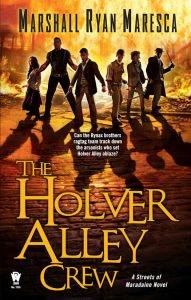It would be impossible-- and also pointless-- to cover every possible element of worldbuilding. You would have to gain a decent mastery of dozens of disciplines, including but hardly limited to geology, biology, meteorology, ecology, zoology, botany, astronomy, sociology, anthropology, architecture... the list could go on. And that's just the fundamentals.
Of course, all that is if you're doing a full-on, from-the-bottom-up worldbuild, which you'd have to be some kind of lunatic to even want to attempt. (Yeah, I kind of want to...)
No matter what, there will be all sorts of details that will be left out. It's inevitable. And there are any number of fine-points that you'll gloss over in your worldbuid that I could address. I'm going to delve into a specific one: the history of the world. Most of the time any worldbuilder will outline the big points: the wars, the revolutions, the queens and kings, the founders and the traitors.
But what about the less obvious things? What about the philosophers, the scientists, the creators? What about the people who guided the culture to where it is?
In your worldbuild, ask yourself: who is the Euclid? Who is the Newton? Who is the Aristotle or Socrates? Who is the Homer or the Shakespeare or the Michelangelo? The Martin Luther or Adam Smith or daVinci?
Or on a different scale: who founded the nation? What is their Magna Carta or Constitution and who wrote it? Why did they write it?
Now, do you have to answer all these questions? And if you do, do the answers have to end up on the page? (No.) But I think there's a lot of value in thinking about these things, that it can add a richness to your worldbuilding that will translate to your writing.
Mixing high fantasy and urban fantasy, The Holver Alley Crew is the first novel of Maresca’s third interconnected series set in the fantasy city of Maradaine.
The Rynax brothers had gone legit after Asti Rynax’s service in Druth Intelligence had shattered his nerves, and marriage and fatherhood convinced Verci Rynax to leave his life of thievery. They settled back in their old neighborhood in West Maradaine and bought themselves a shop, eager for a simple, honest life. Then the Holver Alley Fire incinerated their plans. With no home, no shop, and no honest income—and saddled with a looming debt—they fall back on their old skills and old friends.
With a crew of other fire victims, Asti and Verci plan a simple carriage heist, but the job spirals out of control as they learn that the fire was no accident. Lives in Holver Alley were destroyed out of a sadistic scheme to buy the land. Smoldering for revenge, burdened with Asti’s crumbling sanity, the brothers lead their crew of amateurs and washouts to take down those responsible for the fire, no matter the cost.
Goodreads Page for THE HOLVER ALLEY CREW
Available at Amazon, Barnes & Noble, and more!








